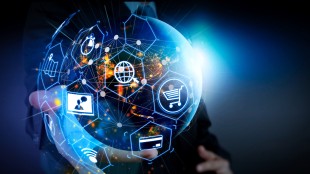
-
 Bethlehem celebrates first festive Christmas since Gaza war
Bethlehem celebrates first festive Christmas since Gaza war
-
Set-piece weakness costing Liverpool dear, says Slot

-
 Two police killed in explosion in Moscow
Two police killed in explosion in Moscow
-
EU 'strongly condemns' US sanctions against five Europeans

-
 Arsenal's Kepa Arrizabalaga eager for more League Cup heroics against Che;sea
Arsenal's Kepa Arrizabalaga eager for more League Cup heroics against Che;sea
-
Thailand-Cambodia border talks proceed after venue row

-
 Kosovo, Serbia 'need to normalise' relations: Kosovo PM to AFP
Kosovo, Serbia 'need to normalise' relations: Kosovo PM to AFP
-
Newcastle boss Howe takes no comfort from recent Man Utd record

-
 Frank warns squad to be 'grown-up' as Spurs players get Christmas Day off
Frank warns squad to be 'grown-up' as Spurs players get Christmas Day off
-
Rome pushes Meta to allow other AIs on WhatsApp

-
 Black box recovered from Libyan general's crashed plane
Black box recovered from Libyan general's crashed plane
-
Festive lights, security tight for Christmas in Damascus

-
 Zelensky reveals US-Ukraine plan to end Russian war, key questions remain
Zelensky reveals US-Ukraine plan to end Russian war, key questions remain
-
El Salvador defends mega-prison key to Trump deportations

-
 Stranger Things set for final bow: five things to know
Stranger Things set for final bow: five things to know
-
Grief, trauma weigh on survivors of catastrophic Hong Kong fire

-
 Asian markets mixed after US growth data fuels Wall St record
Asian markets mixed after US growth data fuels Wall St record
-
Stokes says England player welfare his main priority

-
 Australia's Lyon determined to bounce back after surgery
Australia's Lyon determined to bounce back after surgery
-
Stokes says England players' welfare his main priority

-
 North Korean POWs in Ukraine seeking 'new life' in South
North Korean POWs in Ukraine seeking 'new life' in South
-
Japanese golf star 'Jumbo' Ozaki dies aged 78

-
 Johnson, Castle shine as Spurs rout Thunder
Johnson, Castle shine as Spurs rout Thunder
-
Thai border clashes hit tourism at Cambodia's Angkor temples

-
 From predator to plate: Japan bear crisis sparks culinary craze
From predator to plate: Japan bear crisis sparks culinary craze
-
Asian markets mostly up after US growth fuels Wall St record

-
 'Happy milestone': Pakistan's historic brewery cheers export licence
'Happy milestone': Pakistan's historic brewery cheers export licence
-
Chevron: the only foreign oil company left in Venezuela

-
 US denies visas to EU ex-commissioner, four others over tech rules
US denies visas to EU ex-commissioner, four others over tech rules
-
Pantheon Resources PLC Announces TR-1: Notification of Major Holdings

-
 Bridgeline Expands Footprint with Closeout Retailer Choosing HawkSearch for Its On-Site Search Experience and Personalization
Bridgeline Expands Footprint with Closeout Retailer Choosing HawkSearch for Its On-Site Search Experience and Personalization
-
Koepka leaves LIV Golf: official

-
 US slams China policies on chips but will delay tariffs to 2027
US slams China policies on chips but will delay tariffs to 2027
-
Arsenal reach League Cup semis with shoot-out win over Palace

-
 Contenders Senegal, Nigeria start Cup of Nations campaigns with wins
Contenders Senegal, Nigeria start Cup of Nations campaigns with wins
-
Tunisia ease past Uganda to win Cup of Nations opener

-
 S&P 500 surges to record after strong US economic report
S&P 500 surges to record after strong US economic report
-
UK police say no action against Bob Vylan duo over Israel army chant

-
 Libya's top military chief killed in plane crash in Turkey
Libya's top military chief killed in plane crash in Turkey
-
Venezuela passes law to jail backers of US oil blockade

-
 French parliament passes emergency budget extension
French parliament passes emergency budget extension
-
Trump in Epstein files: five takeaways from latest release

-
 Wasteful Nigeria open AFCON campaign with narrow win over Tanzania
Wasteful Nigeria open AFCON campaign with narrow win over Tanzania
-
Ukraine retreats in east as Russian strikes kill three, hit energy

-
 Macron meets French farmers in bid to defuse anger over trade deal
Macron meets French farmers in bid to defuse anger over trade deal
-
Ineos snap up Scotsman Onley

-
 World is 'ready' for a woman at helm of UN: Chile's Bachelet tells AFP
World is 'ready' for a woman at helm of UN: Chile's Bachelet tells AFP
-
Real Madrid's Endrick joins Lyon on loan

-
 Latest Epstein files renew scrutiny of Britain's ex-prince Andrew
Latest Epstein files renew scrutiny of Britain's ex-prince Andrew
-
US consumer confidence tumbles in December


Ecotourism giving rare iguanas a sweet tooth
Ecotourists feeding grapes to rock iguanas on remote islands in the Bahamas have given them a sweet tooth and high blood sugar, researchers said Thursday, warning of unknown effects on the health of the vulnerable reptiles.
Northern Bahamian rock iguanas living on the Exuma Islands are so hooked on the tasty tourist treats that they rush to the beaches when they hear boats approaching.
"For a tour operator it was a wonderful way to ensure that you would be able to see these animals and people would have these close and personal interactions," said Charles Knapp, of the John G Shedd Aquarium in the United States.
Conservationists had already started to become concerned that the non-native fruit, delivered to the iguanas on the end of skewers, was making the large lizards less wary of humans and potentially vulnerable to smugglers for the pet trade.
But those closely involved with the creatures began to suspect the diets were causing even more of an upset. The clue was in their poo.
A Northern Bahamian rock iguana which consumes the leaves and fruiting plants that nature intended has faeces that scientist Susannah French, of Utah State University, likens to a "Cuban cigar -- a bunch of rolled up leaves".
The excretions of those that had developed a taste for the tourists' grapes are a watery mess.
That prompted researchers to look into the impacts of these sugar-packed diets on the iguanas' bodies.
Their study, published in the Journal of Experimental Biology, first looked in the lab at the effects of a high glucose diet on common green iguanas.
"We were able to then basically deliver glucose over time to mimic the sort of intake these iguanas in the field were getting," French told AFP. They found that these animals struggled to regulate their blood glucose levels.
- Harmful habit? -
Next researchers travelled to the Bahamas and captured a total of 48 iguanas on four islands, half from populations frequented by tourists and the other half from more sheltered and remote outcrops.
Each iguana was fed a glucose drink and researchers then monitored their blood sugar for almost a day.
They found that those on the islands visited by tourists had the highest glucose peaks, with some remaining high for hours, while those iguanas that never saw humans saw levels rise at a slower rate and return to normal more quickly.
While the researchers concluded that the sugary feeding regime affects iguanas physically, they do not yet know how it might impact their health.
"In other species, this would be a pathology. We would say yes this is diabetes if it was mice or humans," said French, who said that further research would investigate a range of potential health effects, from impacts on immunity to reproduction.
Researchers are also looking at how losing their appetite for their normal grazing of local plants might affect the wider environment on the islands.
The iguanas are by no means the only species affected by well-meaning tourists packing inappropriate snacks.
In 2018 researchers found green turtles fed by tourists in the Canary Islands had markers in the blood linked to high consumption of proteins and fat.
Knapp said conservationists acknowledge the importance of tourism for the Bahamas and said tour operators had shown willingness to evolve their tactics -- switching from bread to grapes -- to avoid harming the iguanas.
But there has been a recent proliferation of smaller boat operations, he said, making it harder to make sure people were acting ethically.
"We do not want to try to mandate a complete stoppage, we're just trying to provide the information that they can then use to help develop a plan that perhaps is more sustainable," he added.
D.Kaufman--AMWN



